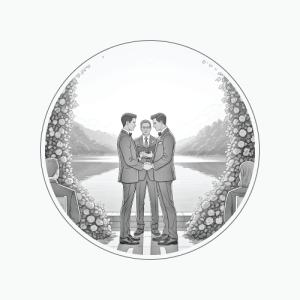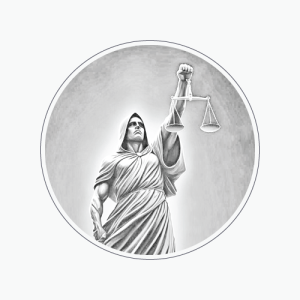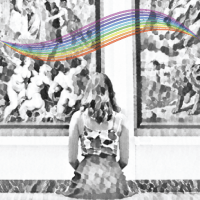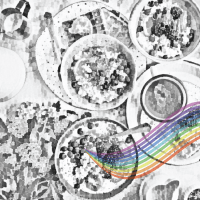Gay weddings and unions are still only relatively new. It was only 23 years ago the first country, the Netherlands, recognised civil partnerships between gay couples. That same country became the first to recognise same-sex marriage just three years later. Today, in 2021, out of 233 countries worldwide, 31% or 72 countries recognise civil unions or partnerships, and 22% or 52 countries recognise same-sex marriages.
With more community members forming unions or getting married, why do both still exist, and what is the difference between the two. Let’s start by understanding the differences. Civil partnerships or unions were created in many countries to enable gay couples to form legally recognised unions without calling it marriage. It was likely a move that ensured gay couples could get legal recognition without upsetting their populations’ more conservative groups and organisations. Civil partnerships or unions are virtually identical to marriage, with the same rights and legal protection.
Though the global LGBTQIA+ community welcomed the ability to form legally recognised unions, many still felt they were being discriminated. They were not being treated fairly because they were denied the ability to marry and were not given the same rights as their straight peers. With worldwide gay rights improving over the years, many countries have now changed their laws to allow gay couples to wed legally.
What are the main differences between civil partnerships or unions and marriage?- Marriages are created through the exchanging of vows and the signing of a marriage document, whereas civil unions are created through the signing of the civil partnership document
- To exit a marriage, you would need to commence divorce proceedings, whereas you would dissolve a civil partnership
- Marriage is often seen as traditional, with religious significance, whereas civil partnerships are solely a legal arrangement
Both are valid expressions of love and commitment. Civil partnerships and marriage hold the same importance within the law; however, it is often up to the couple to decide which best suits them.
Once a couple or group (permitted within some countries and communities) have decided to form a union or to get married, the planning and decision-making process relating to the ceremony begins. Let us now explore some of the main areas and tips for helping you ensure that your special day is a success.
When it comes to weddings, there are a lot of traditions and customs. For example, it is the custom in many western cultures for the bride’s family to cover the cost of the wedding. The groom’s family will often pay for the rehearsal dinner, honeymoon, groom’s attire, wedding rings and the licence. Though some couples still observe the customs, many families will typically share the cost, or the couple will cover all of the expenses independently. With LGBTQIA+ marriages and unions, who would likely pay for what? The answer is dependent on who is able and willing to pay.
The easiest solution is to sit down with family members and discuss who wants to contribute. If family members wish to help, it is vital to find how much they can afford. If they have limited funds, you will need to determine how much you and your partner can afford. A wedding or union should be memorable but should not break the bank. So, by establishing the budget upfront, you can plan for the size and scale of your wedding or union.
When planning a wedding or union, budgeting is crucial. It is vital to establish how much is available to spend and the types of services and number of people that will likely be attending. To create a budget, start by listing all of the services, suppliers, and possible venues for your ceremony. Typically, you will need to budget for the outfits used within the ceremony, rings, venue, transportation, food, entertainment, flowers, cake, and the honeymoon. For each service, activity or task, you should establish likely costs. For example, when catering for a wedding, you be given various menu options; each menu will include a cost per person. The amount you will pay will depend on the selected menu and the number of people you plan to invite to the event. For a list of typical activities, click here to visit the Gayther Wedding and Union checklist
WEDDING & UNION CHECKLIST
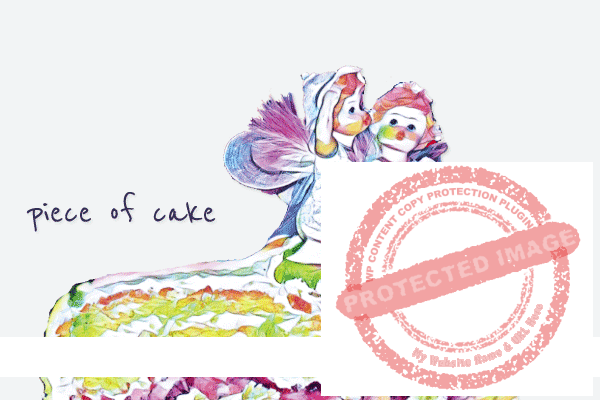
After everything is legalised, you and your partner will need to decide the last name or surname you both will use. What will be your last name? Whether to go double-barrelled, by combining both surnames, using your partner’s surname, keeping your own, or creating a new surname altogether. It is good to establish early on your preferred approach. When using double-barrelled surnames, typically, the surnames are arranged in alphabetical order. If you are using a new surname, it is worthwhile that either partner should consider changing their name by deed poll ahead of the ceremony.
Changing your name legally ahead of the big day means that the new surname would be present on the marriage or civil partnership document. The salutation is equally as important, as it outlines how you and your partner be addressed going forward. You can make this clear in your communications, like within the invitations. For example, you should consider stating the new surnames on the invite, such as the future Mr and Mr Jones-Smith, Ms and Ms Jones-Smith or Mrs and Mrs Jones-Smith.
Depending on the budget, some couples opt to hire a wedding planner. The cost for a planner can range from one thousand US dollars upwards. Though an additional expense, for many, they would not have had their dream wedding realised without the help of their planner. Planners can be a valuable resource for those unable to commit their time or lack the experience of planning an event. Wedding planners are also able to help in reducing costs and finding savings.
Experienced wedding planners will usually have a supply chain, a group of suppliers that they use frequently. Using their supply chain, you might access competitive pricing through their connections and relationships. The do-it-yourself approach works well for other couples and provides them with a more hands-on approach and oversight to all aspects of the special day. Planning a wedding takes a lot of time and effort. Whether you use a planner or arrange it yourself, it is vital that you understand what is involved and that you are willing to commit your time and energy.
WEDDING PLANNERS

Most of the terminology used in traditional weddings is gender-specific. The groom, best man, ushers and stag event typically refer to the male or groom aspects. The bride, the maid of honour, bridesmaids and hen party are all terms related to the female or bride aspects. Even where you stand during the ceremony has a meaning. The groom traditionally stands on the right and the bride on the left. So, with all these terms, how does it work concerning LGBTQIA+ ceremonies?
To start, you choose the labels and how to use them. Within lesbian ceremonies, some couples opt for bride one and bride two, bride and groom or something unique. Many gay couples will follow a similar approach, with groom one or groom two, some even using the terms groom, broom and gride. The labels and how you use them are up to you. You define what you are to be called; just make sure you share them with your friends and family.
Like most people, you will probably invite a wide range of people, friends, family, young and old. Traditionally, couples would send invitations by post, asking that the guest reply using an RSVP slip. The cost for printing the invitations plus any postage is often high and is not always the quickest means of communicating with your guests. More couples are opting to create a wedding newsletter. Guests could sign up for a special newsletter, keeping them up to date with all the developments leading up to the big day. The newsletter can also provide information about the venue, preparations, even the official invite.
There are many services available; some of the main newsletter services are Mailchimp and Sendinblue. Mailchimp is free to use up to 2,000 contacts and 10,000 senders per month, and Sendinblue up to 300 emails per day and unlimited contacts. Services such as WIX offer a free website, which means you could build a basic website for you and your guests to use. Both approaches mean you could send out regular communications to your guests leading up to the big day, making all guests feel that they are part of the journey. You could opt for a simple invitation and send it by post for older guests, those who might not use technology, still making a significant saving utilising this approach. Any savings could free up money, helping you to create customised gifts that you could hand out to your guests to remember the special day
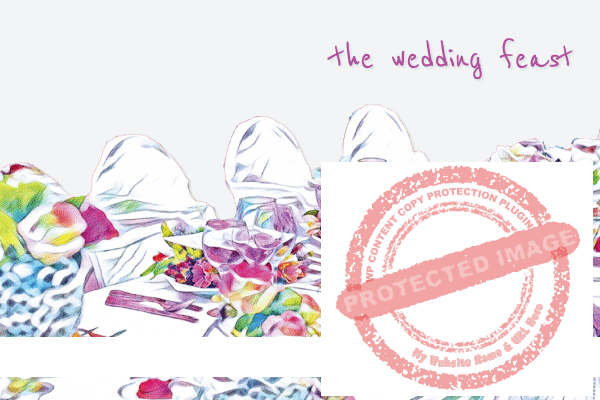
The officiant or celebrant is the person who oversees the wedding or union. The person handling the official aspects of the wedding will usually be a clergy member, linked to a religion, judges, ship captains or civil celebrants. Friends and family can act as officiants for the non-legal elements of the ceremony. However, you will likely need to involve a professionally recognised officiant to legalise your marriage or union. If you are spiritual and your faith is important to you, you will likely hope to get married in a place of worship.
Unfortunately, though many countries have legalised same-sex marriages, major faiths, such as Catholicism and Islam, typically do not allow gay celebrations to take place in places of worship and prohibit their clergy from marrying a same-sex couple. Though this can be disappointing for many gay couples, there are ways to incorporate your faith into the ceremony. One option is to consider marrying within a place of worship where that faith will carry out same-sex marriages, such as the Church of Scotland. The episcopal church approves blessings of same-sex relationships. Within Judaism, the reform and reconstructionist movements allow same-sex marriages and couples to marry in their synagogues. Alternatively, you can incorporate your favourite verses, psalms and hymns within your ceremony.
CIVIL PARTNERSHIPS & GAY MARRIAGES
Many countries have anti-discrimination laws in place, meaning businesses and services that sell directly to the public can get in trouble if they discriminate against LGBTQIA+ individuals. Though most companies will offer their products and services to all, it does not necessarily mean that they are inclusive and are flexible to any requirements you may have. Though some might be offering their products because they have to, many want and actively tailor their services to attract LGBTQIA+ customers.
When deciding which services, venues and suppliers to use, it is helpful to establish whether they are inclusive and have experience working with the community. It is beneficial to reach out to others from within the community for recommendations and reviews and ask the suppliers themselves for examples of other LGBTQIA+ events they have facilitated in the past. When it comes to your wedding or union, you have the right to choose the services and suppliers suitable for you.
INCLUSIVE SUPPLY CHAINS
When planning a wedding or union, you will often find many products and services tailored towards heterosexual couples. Though vast amounts of straight product options exist, many companies have developed solutions to accommodate the fast-growing LGBTQIA+ weddings and unions sector. Some couples opt to adapt existing products. For example, buying two Mr and Mrs cake toppers and using only the Mr and Mr, others will use customised services.
Companies and suppliers that offer pre-made options and products designed by you. Many customisable products are available on AliExpress, Etsy and Notonthehighstreet. If you struggle to find products in your local area, reach out and ask wedding shops if they know of or carry same-sex wedding products.
You and your partner must not lose sight of what you want on your special day.
Though it is great to get ideas and advice from others, you should never feel obliged to incorporate everything into your dream day. Your wedding or union should be a day full of joy and fond memories. Traditions and any religious elements within your ceremony are all personal to you and, of course, are by no means mandatory.
Ultimately, it is a day all about the expression of your love and commitment to each other. I hope you have a fantastic day.
- Civil Partnerships & Gay Marriages Index – learn which countries permit same-sex marriages and unions
- Wedding and Union Checklist – use online or download or easy-to-use checklist designed to make sure you do not miss any important items or tasks
- LGBTQIA+ Marriage & Civil Partnerships Group – speak to other members of the LGBTQIA+ community on Gayther Affinity that are married or who are planning to get married
- Big Directory – discover all of the inclusive businesses and services in your local area; including:






















